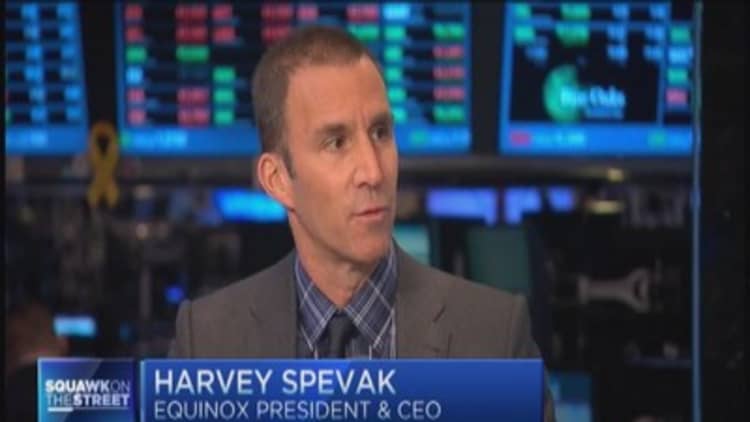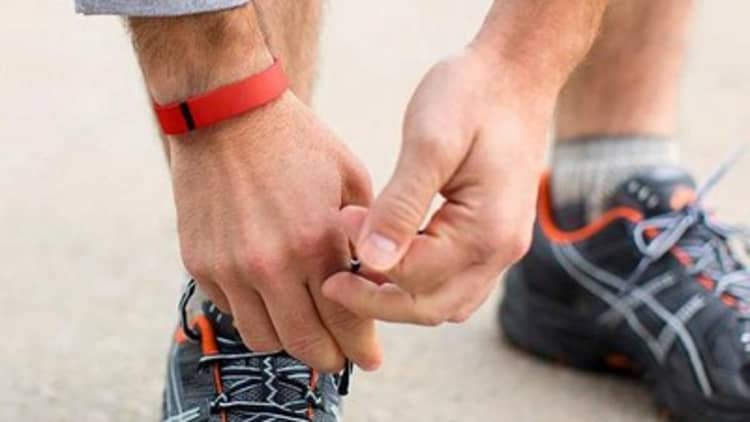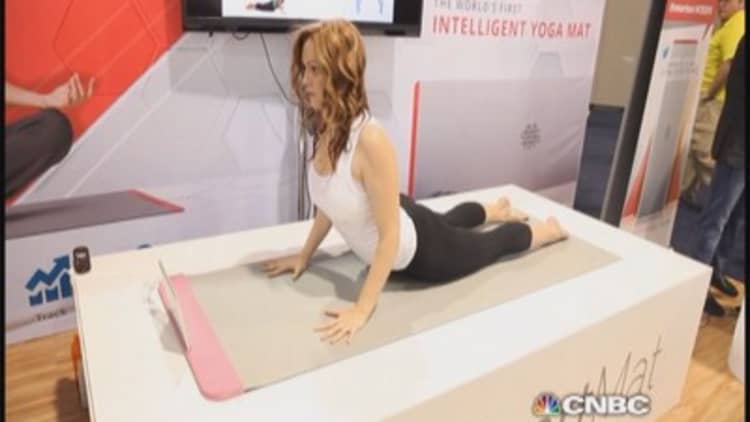
Resolving to get fit in the New Year is nothing new, but turning to smart devices for exercise advice is a growing trend, one that's posing a challenge to high-end gyms.
With so many do-it-yourself digital training devices on the market, some question whether personal trainers and gym memberships will suffer from digital assistants offering fitness tips with the click of a button.
Smart devices that prod users to get off the couch and burn calories are becoming big business. Global shipments of wearable fitness devices are projected to have come in at 70.2 million units last year, according to Gartner, with other estimates projecting it to be a $30 billion market by 2018. Smart wristbands made up the largest segment with about $20 million in shipments.
There are more players piling into the market for fitness-oriented devices like Jawbone, Fitbit, and Nike's Fuelband. On-demand streaming workout providers such as IAC Interactive's Daily Burn are also bringing guided exercise into the home. Underscoring how influential the segment has become, wearables and home fitness devices were well-represented at this year's International Consumer Electronic Show.
Read More Smartwatch or fitness tracker? Why age, sex matter
Gym CEO: Don't hold your breath

As consumers increasingly go high-tech for their workout needs, the question has been raised: will fitness-minded folks stop paying for live trainers to pump them up?
Not anytime soon, Harvey Spevak, president and CEO of Equinox Fitness, told CNBC's "Squawk on the Street."
"There is absolutely no replacement for hands on expertise and experience," he said. "We think this is all additive and complementary because our population—the luxury consumer—wants the information to better inform how to train when they're with us and even when they're without us."
Read MoreHearables - the next big thing in wearable tech
Spevak argues the rise of digital represents an opportunity more than a threat. As a larger population adapts smart devices to their workout, it will boost interest in people who want to get fit, and make it easier for them to track progress.
That's why the high-end gym is embracing the trend. Equinox—which operates pricey health clubs in nine U.S. states and in Toronto and London—was the first national fitness chain to partner with Apple when it launched its Healthkit app in June. Equinox integrated its own digital platform with the tech giant's health tracker.
"What most people don't know is how to use that information," Spevak said. "We can track our members' information. Starting this year we'll start giving them customized information around what programs and services are better suited for them."
In addition to Apple's HealthKit, Google is targeting the space with Google Fit for Android devices. Samsung is integrating wearables and software with its under-development Simband and S.A.M.I platform for app developers.
In the future, "Consumers will be able to integrate the data from most wearables into a single account where their data can be analyzed using cognizant computing to provide useful insights to wearers," wrote Angela McIntyre, research director at Gartner, in a recent report.
Rents pressure

However, fitness tech isn't the only challenge health clubs are fending off. They are also grappling with higher rent costs in expensive metropolitan markets like New York and San Francisco—2 of Equinox's largest urban markets.
Rents are up in virtually every market across New York City, said Jeff Roseman, executive vice president with Newmark Grubb Knight Frank Retail. The brokerage has represented Equinox subsidiary Blink Fitness in leasing deals. "Some markets are up 10 percent, some are up 25 to 30 percent," he said in an interview.
Read More New apps for the new year
At least for now, higher rents are not dissuading gyms from expanding, from 50,000-square-foot fitness clubs down to 2,000-square-foot boot camps, Roseman added. Indeed, these markets are looking attractive to some operators. Last month, 24 Hour Fitness announced that it had acquired 32 gyms from Bally Total Fitness in cities including New York, Denver, and the San Francisco Bay area.
"The good news for most of them is they can take what is not necessarily prime retail space. They don't need to be on the corner of a main avenue. They don't need to be on a ground floor," Roseman said. "They tend to be very creative in the space that they take and that's born out of necessity."
Clarification: An earlier version of this story expressed the number of wearables sold last year in dollar form rather than units sold.


